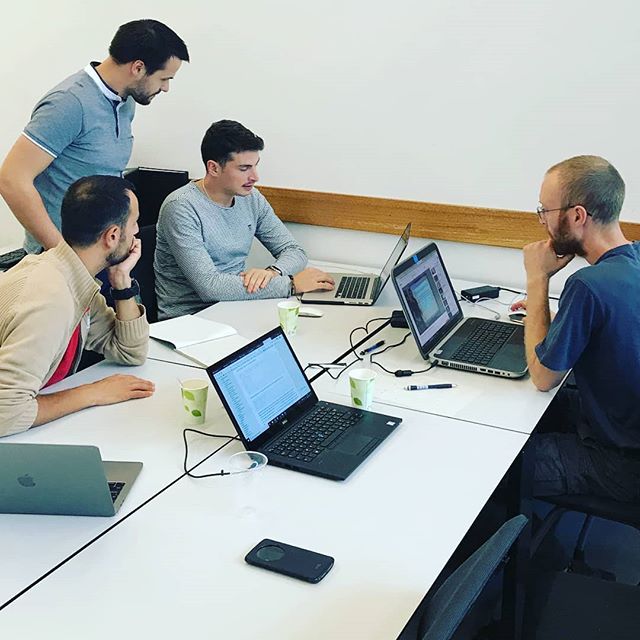In January and February 2024, I pursued a research visit at the University "Aldo Moro" of Bari, Italy, in the Department of Informatics (DIB); at this university, I conducted undergraduate studies in computer science, graduating in 2014 with a thesis in Learning Analytics for Formative assessment. In that department, my interest in education technologies began.
Going into that tall glass building after 10 years as a senior researcher was a strange feeling...
The visit involved the Department of Informatics of Bari (DIB) and Education, Psychology, and Communication Science (ForPsiCom). My primary reference contact during my stay was Dr Gabriella Casalino, an assistant professor at the DIB. For this reason, I was stationed in the CILAB group, led by Prof Dr Giovanna Castellano, to which Dr Casalino belongs.
The overall scope of the research visit in Italy was to establish multiple bridges between my research institute (the DIPF) and the University “Aldo Moro” of Bari.
The first bridge established with the CILAB, the Computational Intelligence Laboratory, was to hold a presentation about my research. On Monday, 22nd January 2024, I delivered my presentation as part of the seminar on “Information Technology Outlook,” the seminar series part of the PhD programme in Computer Science and Mathematics. My talk was entitled “Intelligent Tutors, Learning Analytics and Multimodal Technologies for Feedback Augmentation.”
The talk emphasised the importance of Artificial Intelligence (AI) in providing personalised and immediate feedback to students in online learning environments, especially when no human experts are available. AI's constant feedback availability facilitates self-paced learning, including cognitive and physical tasks, through immersive technologies such as Augmented and Virtual Reality. The presentation briefly overviewed the speaker's research on AI and Multimodal Learning Analytics (MMLA), focusing on "Multimodal Tutors". It showed how MMLA improves online teaching by providing personalised feedback, using relevant applications that integrate AI and immersive technologies.
The talk sparked some interest in my research from the research group members. In fact, after that, I planned various smaller or individual talks with doctoral students to support them in improving their research design. I also participated in two research events of the CILAB group. The first was the GNCS meeting, gathering researchers from CNR, the University of Bari, and the University of Padua to discuss the results of the joint project on “Computational methods, based on fuzzy logic, for eXplainable Artificial Intelligence (XAI)”. Furthermore, I participated in the brainstorming meeting of the CILAB to address the latest and most complicated research challenges the group members face.
The collaboration with ForPsiCom focused on research transfer and exchange with the existing groups in Bari that deal with education technologies, the first led by Prof Beatrice Ligorio, the second led by Prof Loredana Perla and Prof Michele Baldassare.
On the 20th of February 2024, I presented to Prof Ligorio's group. The talk, entitled “Intelligent Tutors, Learning Analytics and Multimodal Technologies for Feedback Augmentation”, had, this time, a much more humanistic focus compared to the one given at the DIB. The presentation lasted 90 minutes, followed by discussions and questions. After the presentation in the afternoon, I attended 4 PhD presentations from the PhD students of Ligorio’s group. I provided PhD candidates with my feedback on their progress and what they could improve in their future steps. Moreover, we discussed a possible involvement in a research project on emotions and learning. 
On the 28th of February 2024, I presented at Prof Perla’s and Baldassarre’s group. As preparation for the presentation, I asked the students to listen to a recent podcast I recorded entitled “The Future is Multimodal” as part of the AI_ducation podcast series. The meeting with Perla’s group was particularly successful as it allowed the participants (mostly PhD students) to share their views on AI in education, specifically the support that generative AI and large language models can have in education.






